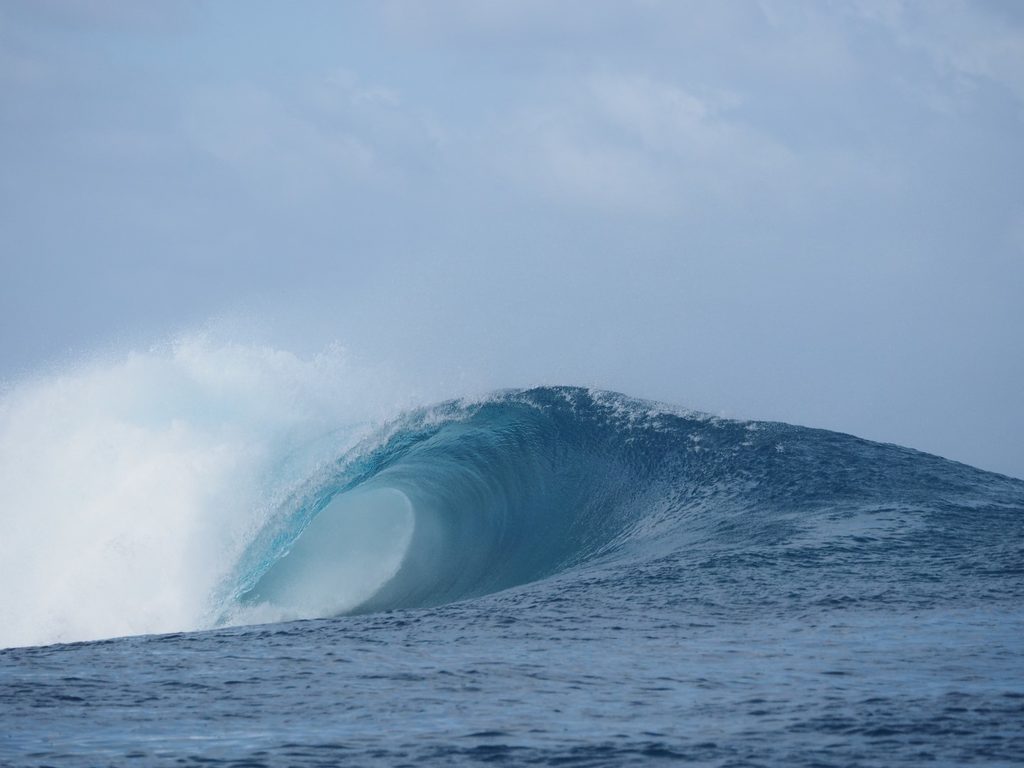Mosese Coriakula, chair of the Levukaidaku Village Development Committee in Matuku, believes that development is more than just infrastructure.
It is ensuring people are empowered with the right knowledge and systems to sustain progress.
He belongs to the chiefly household of the Gone Turaga Na Ratu Na Taukei Wailiwaliwa, the traditional head of the Vanua o Baba Matuku, which includes the villages of Levukaidaku, Lomati, Makadru, and Raviravi.
Mr Coriakula has been at the forefront of community planning and dialogue. His focus – balancing opportunity with responsibility.
Surfing potential
A few years ago, a surfing company carried out an assessment on the island’s surf potential. What they found, according to Mr Coriakula, was nothing short of ‘world-class’.
“Matuku possesses one of the most beautiful and pristine surfing areas in Fiji,” he said.
“Visitors from abroad who’ve surfed here have told us it’s among the most beautiful in the world.”
But he also noted the sensitivities surrounding the issue.
“This is a very delicate matter, as it involves the sea, and not one village can fully claim ownership over the surfing areas,” he explained.
Mr Coriakula believes that for the community to benefit fairly and sustainably, a dedicated and independent business arm must first be established.
“This business arm will handle advertising, promotion, regulatory requirements, all the administrative and commercial aspects of running an efficient and effective surfing experience in Matuku,” he said.
Roads to drive growth
Development on the island has taken on new life, particularly with the construction of new roads connecting villages that were once accessible only by boat.
“The development of the road network around Matuku has significantly impacted the economic and social wellbeing of the island,” Mr Coriakula said.
“For many villagers, especially the elders, it’s the first time they’ve seen vehicles enter their village.”
These roads, he added, are not just convenient for travel but are vital for economic activity.
“They improve access to farms, making it easier to transport root crops and produce to the village and jetty. The road network is a doorway for development of the vanua.”
Still, he noted the need for regular maintenance to ensure accessibility for all vehicles.
“When the road is properly designed, all other forms of development will also flow smoothly,” he said.
Building financial discipline
Mr Coriakula also sees financial literacy as central to the future of Matuku, especially for its youth.
“Our people, particularly the youth, must learn financial literacy and discipline if they seek to become successful as business proprietors,” he said.
“But it can’t just be limited to workshops, it needs to be integrated into our education system.”
He believes that sustainable business growth must begin with small enterprises.
“People need to be taught how to set up a business from the SME level and grow it into a viable commercial enterprise,” he said.
While acknowledging the stereotype that iTaukei businesses rarely last, he points to a deeper cultural issue.
“People say it’s because of our obligations to the vanua and the church. But I believe our relatives also play a role, they must understand and respect the boundaries between the individual and the business.”
Youth engagement
In Levukaidaku, where youth make up a large proportion of the population, a promising initiative is already underway.
The youth group has been formally registered and is now transitioning into a cooperative.
“This transition is important because as a cooperative, they’ll be able to access targeted funding and venture into business opportunities,” Mr Coriakula explained.
He also hopes the youth will take part in maintaining the island’s roads, reviving a previous system where each village maintained the road from its boundary to the next.
“If government chooses to revive this, it’s an area our youth could be involved in,” he said.
Mr Coriakula emphasised that the island’s development story must be one of shared benefit and balance.
Whether it’s the promise of surfing tourism, expansion of infrastructure, or the nurturing of young entrepreneurs, the Matuku elder believes that for progress to be genuine, it needs to owned, managed, and sustained by the people themselves.
“Development is not just about building roads or attracting visitors,” he said.
“It’s about building our people’s capacity to manage what we have and pass it on, better, to those who come after us.”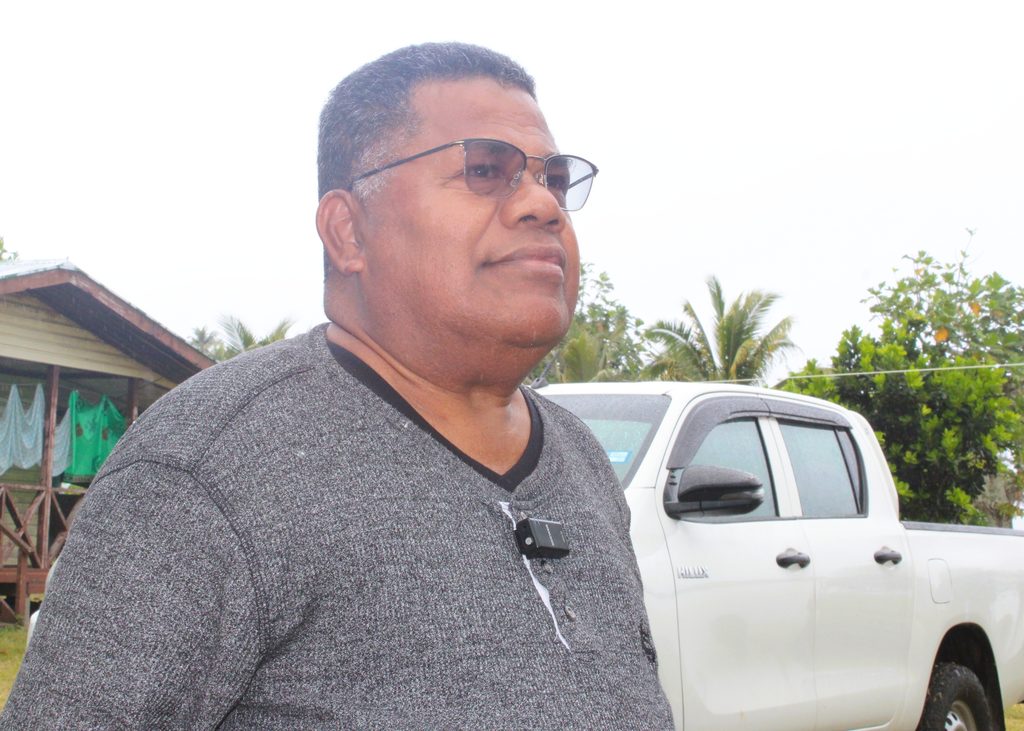
Right: Levukaidaku Village Development Committee chair, Mosese Coriakula.
Picture: ALIFERETI SAKIASI
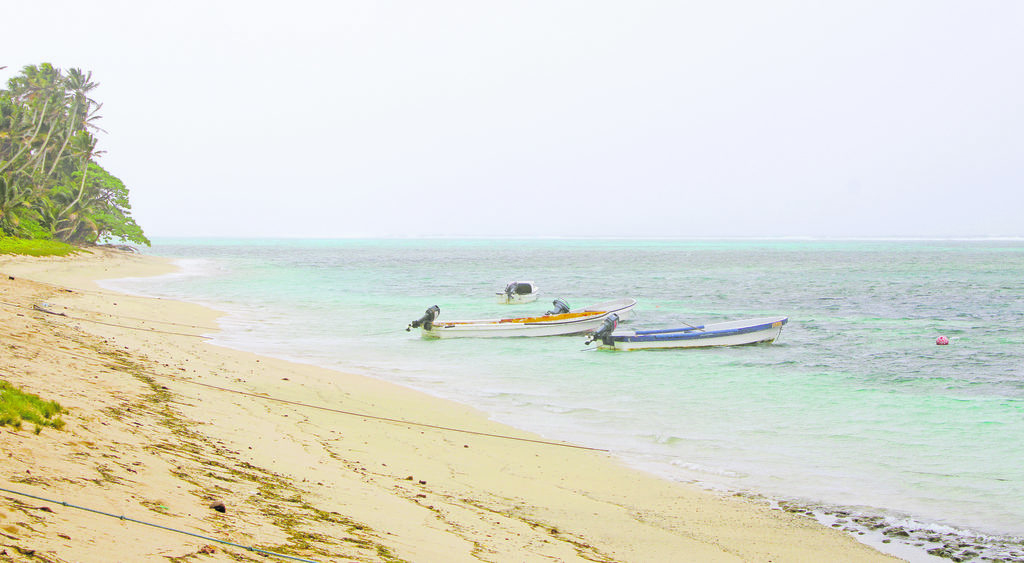
Fiber glass boats moored by the beachside at Levukaidaku Village, in the background is the surfing area close to the village. Picture: ALIFERETI SAKIASI
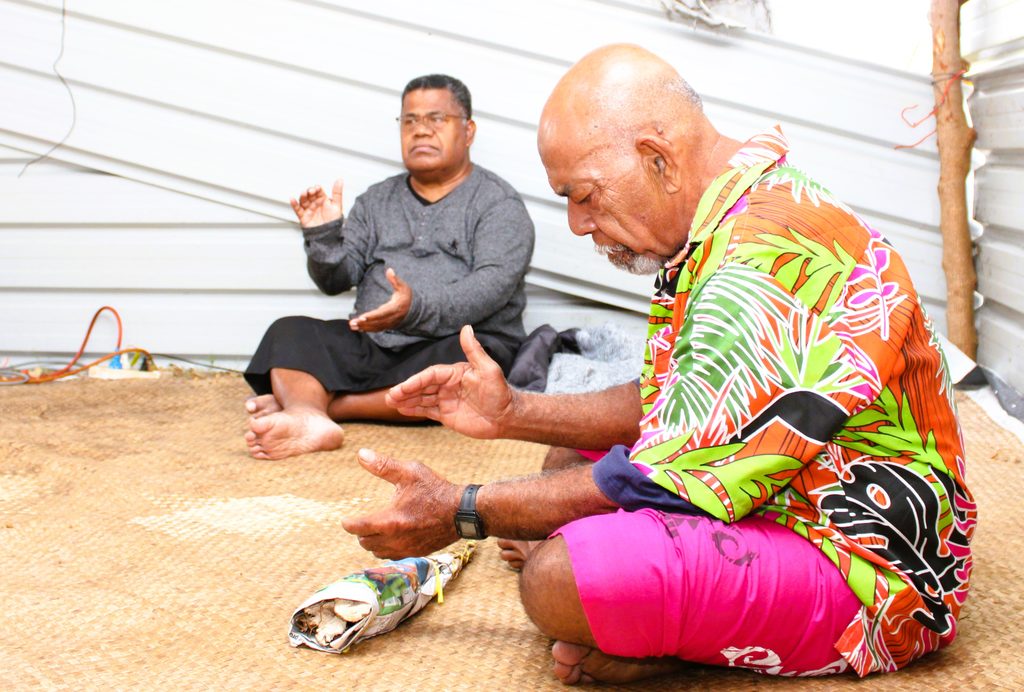
Left: Village elder, Joeli Vakayatu accepts the isevusevu from the government team on behalf of the vanua. Picture: ALIFERETI SAKIASI
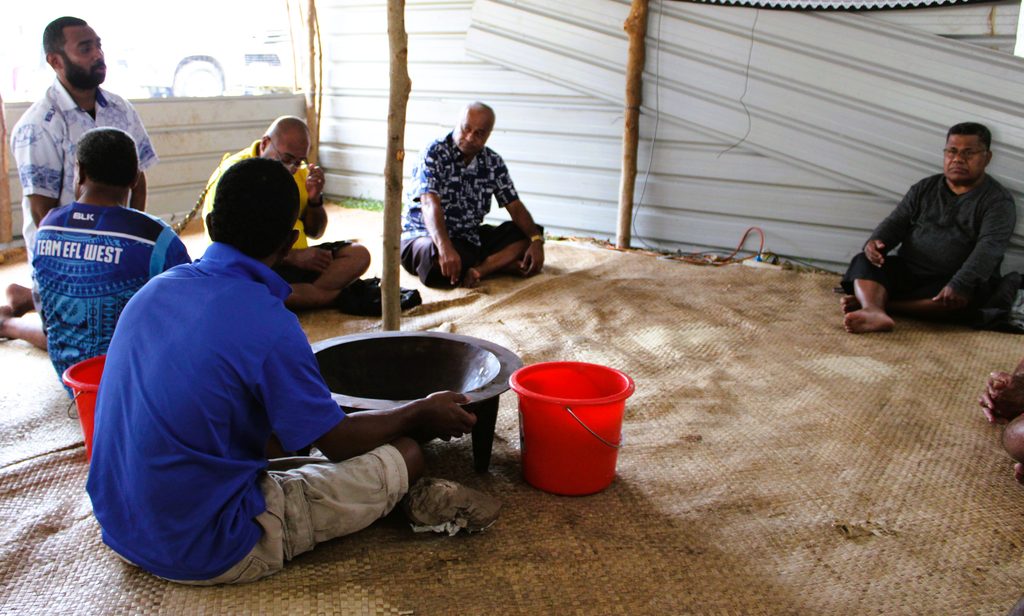
Government delegation led by Assistant Minister Naisa Tuinaceva presents their isevusevu to the vanua o Baba Matuku represented by the yavusa Wailiwaliwa. Picture: ALIFERETI SAKIASI

